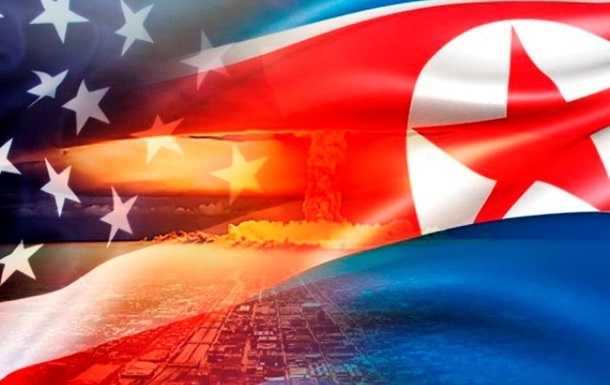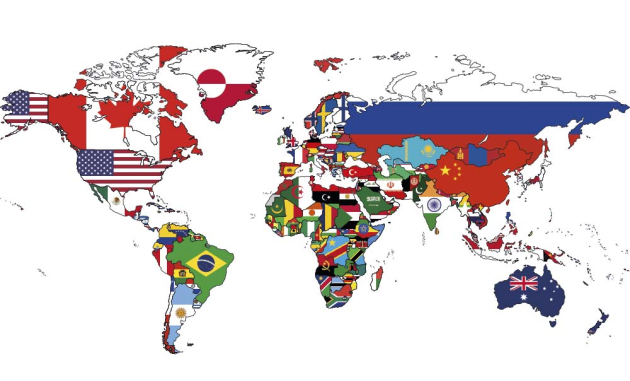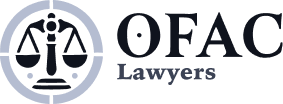
North Korea Sanctions
Sanctions against North Korea are measures taken by the international community to limit the economic, political capabilities, and security of North Korea. The main reasons for imposing sanctions are nuclear tests, violations of human rights, and international norms. The United States, the European Union, and the United Nations have agreed sanctions program OFAC, which is aimed at deterring the North Korean regime and preventing the further development of its nuclear program. Now let’s take a closer look at what sanctions have been imposed on North Korea and which executive orders regulate these sanctions.

Why North Korea Is Subject to Sanctions?
North Korea sanctions were introduced back in the 1950s when the Korean war began. After the war, the international community, primarily the United States and its allies, started implementing sanctions in response to aggressive foreign policy and human rights violations occurring in North Korea. During that period, the sanctions concerned trade and financial operations.
Since the 1990s, especially after the first nuclear test in 2006, sanctions have significantly intensified. This test violated international agreements and led to the imposition of economic and trade sanctions at the UN level and by other countries. North Korea continued to develop its nuclear program, which resulted in further strengthening of sanction pressure. This included a ban on the export of oil and gas, restrictions on coal and textile trade, as well as asset freezes.
In addition, sanctions limit North Korea’s access to international financial markets and complicate the conduct of trade operations. Restrictions were imposed on transactions with North Korean banks, depriving the country of the ability to finance nuclear research.
At the same time, Russia, although it supports major international efforts to limit Pyongyang’s nuclear ambitions, unlike Western countries, often expresses its position in favor of a diplomatic approach. Russian authorities believe that additional sanctions may not lead to the desired result and strongly advocate for continued negotiations. Nevertheless, Russia also supports restrictive measures aimed at preventing the proliferation of nuclear technologies.
One of the goals of the sanctions is also to restrict the movement of high-profile government officials and military personnel, which weakens their influence and limits opportunities for further consolidation of power within the country.
Sanctions are aimed not only at restricting North Korea’s access to international markets but also at attempting to force the leadership to change its policy and abandon nuclear developments.
North Korea Sanctions: Recent Updates
In recent years, sanctions against North Korea have become increasingly strict and comprehensive. On the international stage, constant efforts are being made to intensify pressure on Pyongyang to bring it to the negotiating table and halt nuclear tests. What sanctions have been imposed on North Korea? For example, the UN tightened sanctions in 2020 by introducing new restrictions on the export of coal, iron, and textiles. In response to these sanctions, North Korea continued its tests, further increasing international pressure.
Moreover, the USA and the EU imposed additional sanctions on financial transactions, significantly limiting North Korea’s ability to trade with the outside world. These measures are aimed not only at economic isolation but also at restricting North Korea’s military ambitions.In case you or your company encounter issues related to North Korea sanctions, we recommend contact our OFAC attorneys.
U.S. Sanctions on North Korea
U.S. sanctions against North Korea began with the introduction of a series of legislative and executive measures aimed at restricting the economic and political activities of this country on the international stage. The U.S. imposed such sanctions in response to nuclear tests, as well as threats from North Korea against the U.S. and other countries.

Executive Order 13466
The decree was signed on June 26, 2008, and was aimed at restricting North Korea’s entry into economic and financial relations with the United States. The decree became an important step toward tightening sanctions against Pyongyang, with its main measure being a ban on financial transactions with North Korean state institutions. One of the goals was to freeze assets associated with North Korea’s nuclear program.
Executive Order 13551
An executive order issued on August 30, 2010, tightened sanctions against North Korea, particularly regarding transactions with individuals and legal entities that support and finance North Korea’s nuclear program. The order provided for the freezing of assets that could be linked to activities threatening the national security of the United States. Restrictions were also introduced on the supply of goods and services that could be used for military purposes in North Korea.
Executive Order 13570
The decree was signed on April 18, 2011, and became a new step in restricting trade with North Korea. It prohibits the export of goods and technologies that could be used in the development of weapons of mass destruction. It also complicates access for North Korean organizations and citizens to international financial markets. An important goal of the decree was to deter Pyongyang from conducting further nuclear tests and developing nuclear weapons.
Executive Order 13687
The decree was issued on January 12, 2015, after North Korea conducted a nuclear test in 2013. It was stricter, with sanctions aimed at limiting the country’s financial ties to international markets. The decree introduced additional restrictions on the import and export of resources such as coal and iron, which could have been used to further strengthen the armed forces. The sanctions also affected North Korean banks, restricting their ability to conduct international transactions.
Executive Order 13722
The decree was adopted on March 1, 2016, in response to North Korea’s new nuclear test. It provided for the introduction of strict sanctions aimed at blocking economic and financial operations with Pyongyang. These included a ban on any transactions with the Bank of North Korea and restrictions on access for leading state enterprises of North Korea to the international financial system. The decree also mentions sanctions against companies that may be involved in the development and proliferation of weapons of mass destruction.
Which other governments have imposed sanctions on North Korea?
Sanctions against North Korea were imposed not only by the United States but also by a number of other countries that joined international efforts to limit Pyongyang’s capabilities in economic, trade, and financial sectors. The main participants in this campaign are the European Union, Japan, South Korea, and several other countries that actively support international sanctions.

The European Union (EU) has become one of the key players in sanction policies against North Korea. The EU has adopted measures aimed at restricting trade with this country and freezing assets linked to North Korean institutions and citizens involved in the nuclear program. In response to new nuclear tests, the EU regularly extends and strengthens sanctions aimed at limiting financial and economic operations, as well as reducing the supply of goods that could be used for military purposes.
Japan, as the closest neighbor of North Korea, is also actively participating in the sanctions campaign. It has taken strict measures, including a ban on importing goods from North Korea and freezing the assets of North Korean organizations. Additionally, it has introduced travel restrictions for high-profile representatives of the regime. Japan is also involved in international efforts aimed at curbing North Korea’s nuclear program and ensuring security in the region.
South Korea, being a direct neighbor and the primary target of North Korea’s military threats, has also imposed sanctions against Pyongyang. South Korea has restricted economic interaction with North Korea, including a ban on the export and import of goods, as well as the execution of financial transactions with North Korean organizations. These measures were aimed at deterring aggression from North Korea and supporting the international community’s efforts toward denuclearization.
In addition, a number of other countries, including Australia, Canada, and New Zealand, also supported North Korea sanctions, actively participating in international initiatives. These countries mainly support economic pressure on Pyongyang, limiting its ability to finance nuclear developments as well as engage in international trade.
International efforts on sanctions against North Korea are driven by the desire to achieve the cessation of nuclear tests and armaments, as well as to ensure stability and security in the region.
Understanding OFAC General License
The Office of Foreign Assets Control of the U.S. Department of the Treasury is actively involved in implementing sanctions against North Korea. One of the important aspects in this area is the system general licenses, which allow organizations and individuals to engage in certain activities despite sanctions. These licenses are regulated by specific rules and provide permissions to conduct operations within the restrictions if they comply with U.S. policy.
There are several types of general licenses, including those related to humanitarian aid, trade with certain countries, and activities within the framework of counterterrorism. Each license has its own specifics, and it is important to understand their differences. For example, licenses related to the trade of food or medical goods can facilitate international activities without violating sanctions. There are also licenses that allow certain financial transactions aimed at supporting international security.
North Korea Sanctions Lawyers
North Korea sanctions require strict adherence to international norms and laws. Therefore, there is a need for specialized OFAC attorneys who can provide consultation and assistance to organizations that must comply with sanctions. These attorneys specialize in sanctions and international law. They perform an important function in interpreting legislation and assisting companies seeking to avoid sanctions or adapt their activities to changes in international policy. The work of our attorneys covers a wide range of issues, including OFAC compliance, international sanctions, and regulations governing the movement of funds between states.




